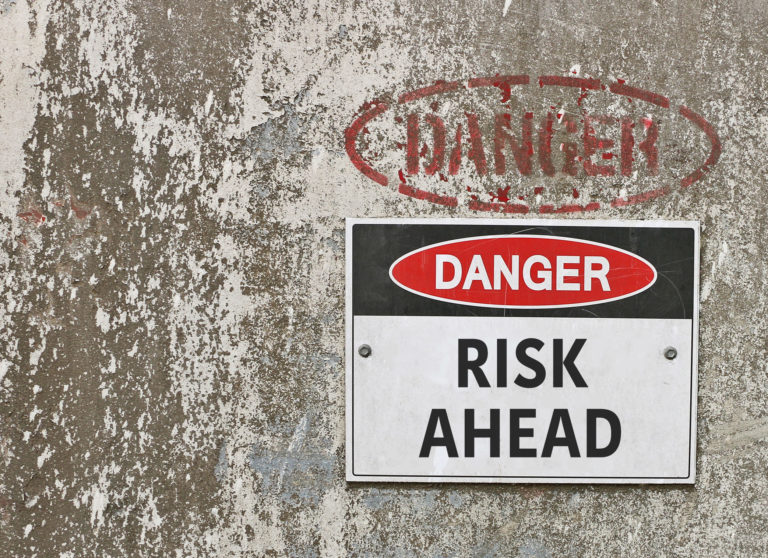
Source: Kim Britten / Shutterstock.com
Editorial Note: InvestorPlace Beacon independently determines what we cover and recommend. We earn a commission from affiliate partners on many offers and links. However, these commissions do not affect our editors' opinions or evaluations. Click here to read our full advertiser disclosure.
High-yield savings accounts (HYSAs) have become increasingly popular in recent years as they offer more attractive interest rates than traditional savings accounts. Offering significantly higher annual percentage yields (APYs), these savings accounts can be appealing to savers who want to grow their nest eggs more quickly. However, despite the many advantages, there are several associated risks that consumers should bear in mind.
Interest Rate Volatility
One of the primary risks associated with HYSAs is the volatility of interest rates. While these accounts often offer promotional rates to attract new customers, rates can fluctuate based on the economic environment and the policies of the bank or credit union.
The Federal Reserve raises and lowers interest rates to manage the economy, and financial institutions tend to follow suit with their own interest rates on products. Should the Fed lower rates, the APYs on HYSAs can decrease significantly. This volatility can impact the expected return on savings, making it challenging to rely on these accounts for consistent growth.
Some HYSAs also might require a minimum balance to qualify for the higher interest rate and falling below this threshold could result in a lower rate.
Inflation Risk
While HYSAs offer higher interest rates than traditional savings accounts, they may still struggle to keep pace with inflation. Inflation erodes the purchasing power of money over time, meaning that the real value of your savings could decrease even if the nominal value increases. If the inflation rate outpaces the interest rate on your HYSA, the purchasing power of your money will decline, potentially negating the benefits of the higher interest rate.
Restrictions on Accessing Your Funds
Like many savings accounts, HYSAs may impose restrictions on accessing funds. Some accounts may limit the number of withdrawals or transfers you can make each month, with most limiting withdrawals and transfers to six per month.
If you exceed these limits, you could face fees or even trigger account closure. However, HYSA are still highly liquid compared to other savings vehicles like certificates of deposit, which have early withdrawal penalties if you don’t keep your money in the account for a certain amount of time.
Certain HYSAs may also have withdrawal limits or may require several days for transactions to process. In a financial emergency, even a slight delay can cause serious problems.
Potential Fees
While many HYSAs are marketed as free, that doesn’t always mean they don’t have any fees. Some accounts have hidden fees that can erode the interest earned, such as monthly maintenance fees, excessive transaction fees and fees for falling below a minimum balance.
It’s crucial to read the fine print and understand all the potential costs associated with an account before opening one.
Deposit Insurance and Security
While most HYSAs offered by reputable banks and credit unions are insured by the Federal Deposit Insurance Corporation (FDIC) or the National Credit Union Administration (NCUA) up to $250,000, not all financial institutions offer the same level of security. Most HYSAs are offered by online banks, which can pose additional risks if they lack robust security measures. It’s important to verify the security practices of any bank you’re considering before you open an account.
As many HYSA are offered by online banks, there is an inherent risk associated with technology and cybersecurity. Cyberattacks, data breaches and other technological failures can compromise your personal and financial information. Although most banks invest heavily in cybersecurity, risk is never eliminated entirely.
The Bottom Line
HYSAs can be an excellent tool to boost your savings growth. However, it is essential to be aware of the risks. Thoroughly researching and understanding these risk factors will help you make an informed decision regarding whether a HYSA aligns with your financial goals and risk tolerance. Always compare different accounts and read the terms and conditions carefully to ensure that you are making the best choice for your financial future.
Sources
Federal Deposit Insurance Corporation (FDIC), National Rates and Rate Caps.
Accessed June 30, 2024.
https://www.fdic.gov/resources/bankers/national-rates/index.html
Federal Reserve, Monetary Policy
Accessed July 1, 2023
https://www.federalreserve.gov/monetarypolicy.htm



